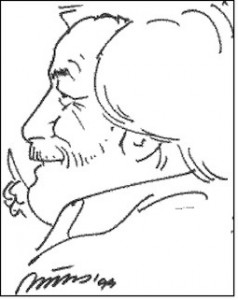Russ Volckmann
 Stephane Hessel and Edgar Morin.s The Path of Hope, foreword by Jeff Madrick. New York: Other Press, 2012.
Stephane Hessel and Edgar Morin.s The Path of Hope, foreword by Jeff Madrick. New York: Other Press, 2012.
It is an election year in Algeria, Egypt, France, Iran, Italy, the US, Israel, Russia, and elsewhere. Do you think that is a reason for so much interest in integral circles in politics and action? Well, for sure the politics thing. But what about action? We are being called to occupy, to learn to lead, to take action. Some even write about action for what! Don Beck is a good example. He has a vision; he has organized some folks; he has practiced taking action in multiple environments, as have some of his colleagues. But what are the ends of integral politics, of occupying integral, of taking action in the world? Do we have a manifesto? An agenda? A set of solutions to the challenges facing us in the world? Is leadership important for an integral future, or at least a future where integral is making a generative impact? I am sure that if you cull the online material you will be able to answer these questions.
As we all know, there are lots of folks who have political manifestos from across the spectrum. A new book, a manifesto of sorts, has recently been published with the political agenda of Stephane Hessel, who was a leader in the French Resistance in World War II, and Edgar Morin, a sociologist and probably France’s most influential philosopher of the Left. Both are now in their nineties. The Foreword by Jeff Madrick, a New York Review of Books writer, author, and research fellow provides us with an overview of this gem of the Left. The book is pocket sized with a mostly red cover.
Their argument is that much of what challenges the world today is a product of finance capitalism. Finance capitalism involves the manipulation of money and its symbols by a few to dominate the many. It also relates to growing ethnic tensions in Europe and other parts of the world. Both have led to a loss of community and “fellow feeling.” Hessel and Morin offer an even more complex view of the state of the world: “Humanity has failed to attain humanity.” (cite page #?)
They argue for the pursuit of Universal Principles as has evolved in the Universal Declaration of Human Rights. For this long journey to be successful it would be necessary “to abolish the absolute sovereignty of all nation-states, but in all other domains, preserve that sovereignty.” To do this we must globalize and deglobalize. Thus, their approach is both/and in that it recognizes the continuation of capitalism, but a capitalism much constrained from its irresponsible paths – as exemplified in JP Morgan-Chase’s recent loss in excess of $2 billion in risking investments from funds that were intended to be the best protected, safest in their banking system – only the most recent example of the irresponsibility of finance capitalism.
They argue that globalization-deglobalization must protect all of us from the grim dangers that have been looming larger and larger in our world. At the same time, cultural diversity can be fostered, as well as can local economies, such as local farming, trade, and craftsmanship. “We must rethink and diversify modern development to ensure that it preserves the invaluable forms of fellowship that are integral to the community ethos.” This must include making distinctions regarding what is important for growth and what we need to diminish. This requires encouragement of green energy, public transportation, socially responsible forms of economics that involve solidarity and fellowship, improved schools, culture and urban planning, humanizing the worlds’ big cities, and more.
We must fight the parasitic role of middlemen, weapons industries that profit from war, endemic consumer addiction, the economics of the superfluous and the superficial, and our deep-rooted spendthrift lifestyle based on getting and squandering. The time has come to draw up a single list of the things that should grow and the things that should be reduced.
Much of the rest of the book pertains to that list in a well-considered and passionate presentation of proposals for action. We must reform and transform the politics of the quality of life.
With this end in mind, we propose a path that entails at once a new economic and social policy, a labor policy that both reduces bureaucracy and lessens emphasis on ‘competitivity,’ a new urban strategy and a shift in priorities toward the countryside, new programs concerning agricultural production, a new attitude toward consumption—all of which are diverse and complementary components of an overall policy of quality of life.
The alternative to finance capitalism is a pluralistic economy that progressively controls multinational companies and fostera mid- and small business. In the case of the former, the “pluralistic economy abolishes its all powerful status, while taking great care to exercise strict control over finance capitalism.” Here are some samples of their program.
- A socially responsible form of economics that promotes fellowship entails encouraging cooperatives of production and consumption, professional organizations and solidarity associations, ethical savings and loans and institutions of micro-credit, and establishing new legislative and financial measure designed to finance local projects that create jobs.
- An economy predicated on fairness…
- A green economy…
- All politics must take into account environmental and ecological issues…
- The state as an investor in society…
- Free and fair competition…
- We will restrict financial speculation…
- Develop subsidies for farm-based and organic agriculture…
- A payment for underprivileged families, modeled on the Brazilian Bolsa Familia, will enable them to pay for the education of their children and their most urgent needs.
Their program goes on to protect consumers, provide developmental programs for youth, addresses economic inequalities, presents a democratic educational system and a set of approaches for dealing with these. They close by stating that theirs is not an exhaustive list, but one that is intended to stimulate discussion and reshaping.
Today we are sorely in need of a new form of politics, a politics based on a yearning to live and restore life, a politics that uproots us from our present-day apathy and mortal resignation. This politics of a yearning for life takes on the features of a politics of the quality of life… The yearning for life will feed the quality of life and the quality of life will foster a yearning for life. Together, they will both blaze a path to hope.
So we are left with hope and a guide to what a path to hope would look like. For those of us who are convinced that the time is right for action, for realizing integral in the world, what are the implications of this updated Left view of the world? Whether we agree or not with any given policy isn’t really the point. We must determine how we are going to engage in the socio-economic, cultural and political processes that are likely to be very different from our experience of personal development. It goes beyond preparing ourselves for leader roles and enabling others to step into those roles. It goes to the diversity of cultures and the incredible systemic challenges in transforming our institutions locally, nationally and globally. It calls for an integral, transdisciplinary effort that we are poorly equipped to sustain, not because there aren’t lots of concepts and models out there, but because the ones that are there, while achieving some–often short-lived–changes, rarely result in transformations. Even the institutions that have experienced transformations usually find a form of failure down the road. Pessimistic? Perhaps. It requires keeping in mind Don Beck’s question, “Who is leading whom to do what to whom?” (my paraphrase). It requires knowing that there is no answer to that question that can be sustained. The answer is in living the experiences of engaging with the challenges Hessel and Morin have laid before us. More importantly, it is a call to an ongoing, dynamic, iterative and generative process where success is to be celebrated when it can be had. Those moments are so sweet that it is worth our while to keep trying with a deeper appreciation of the integral and transdisciplinary challenges ahead.


Has anyone dealt with the central role of money in politics? While the industrial era disenfranchised women and slaves, it also – when paired with capitalism as the mode of organizing industrial production allowed accumulation of wealth that that has disenfranchised the 99%.
This might be viewed as antithetifal implications of industrialism that can be transcended only when the power of the voted is harnessed to totally eradicate the influence of money in politics. For intro see http://www.opednews.com/articles/Reversing-Citizens-United-by-Larry-Kachimba-120112-189.html
Although this is the often unspoken central issue in every area of sustainability discourse, leadership is wanting or conflicted by tghe dynamis of professional activism